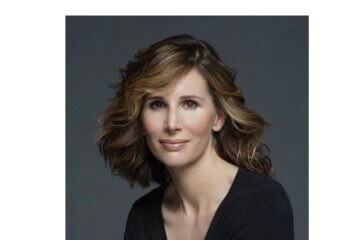
As a female executive in the wealth management industry, I spend a lot of time on two seemingly unrelated (but actually quite related) topics. The first is the so-called Great Wealth Transfer, and the second is mentoring and coaching women.
The Great Wealth Transfer refers to the $30 trillion of wealth that is set to pass from the Baby Boomer generation to their heirs in the coming decade. It also refers to the demographic shift in the control of that wealth. Women, in addition to being inheritors of this wealth, are also gaining grounds in terms of their own careers and increasingly in the driver seat when it comes to financial decisions in the household.
Recently, I read “How Women Rise” by Sally Helgessen and Marshall Goldsmith, and on those pages I saw our competing worlds collide. The book details 12 habits that make it more challenging for women to secure their next raise, promotion, or job. But I noticed that many of these same habits could also hold a woman back on maximizing her financial security.
Here’s a look at the top habits from the book that I believe uniquely apply to women when it comes to breaking free from the limitations we sometimes create for ourselves, and maximizing our financial potential following the Great Wealth Transfer.
Overthinking – The Perfection Trap
We women tend to strive for perfection. We want to understand everything, and think through every detail and possible mistake. But this often holds us back from seeing the bigger picture. The same can be said when it comes to understanding our investment options. For women who inherit money from The Great Wealth Transfer, it’s incredibly important that we’re informed about the best places to put our money so we can ensure its growth over time.
Unfortunately, Wall Street industry jargon and the ever-increasing number of complex investment options can be daunting. Thankfully, there is no shortage of books or podcasts to teach financial literacy. But mainly, do not let the “perfect” get in the way of the good. In other words, learn enough investment basics to start making educated decisions. Test and learn as you start investing small and get comfortable with measured risks. Join an investment club, or create one, where you can learn from one another.
Not Shouting Out What You Really Want
Women are often caregivers, and tend to acknowledge and prioritize others while minimizing our own needs.
In the boardroom, this often translates to a perception that we don’t believe we belong, or that others’ priorities and ideas are more important.
When it comes to our own financial well-being, I often see women doing the same thing. We tend to ask how our wealth will benefit others, in terms of caring for children or family members, or giving to charity. While these are all laudable goals, don’t forget that on average, a woman lives longer than her male counterpart by nearly 6 years, or about 8%.
That means that the wealth you have needs to sustain you for 8% more life. Rather than ensuring that everyone else is fine, my advice is to first ensure that your own long-term retirement plan is well provided for, and when you do make gifts to family and charity, that it is intentional with the impact you really want for your own legacy.
In other words, women are great advocates, but we all need to advocate for putting our own personal financial needs first. If you stand to inherit money from The Great Wealth Transfer, let this be your reminder to pay yourself first and secure your financial future.
Letting the Immediate Drown Out the Long-Term (AKA Putting Your Job Before Your Career)
With all the demands of our jobs, families, and communities, we often let the day-to-day issues monopolize our energy and time, such that we forget to look at the bigger picture from a career perspective. For example, a woman can often find herself passed over for a promotion because she was doing her current job too well and never took the steps to position herself for the bigger role.
When it comes to one’s long-term financial health, the same can be true. If you only look at current data and needs, we can often get fixated on managing immediate investment returns, or reacting to slight fluctuations in cash-flow needs.
Instead, let’s look at all the things around our investments that also impact net returns, and how they may affect our long-term goals. This is akin to paying attention to all the tangential areas around your job that ultimately contribute to your long-term career.
As you prepare for your long-term financial needs, here are some questions to ask:
- Are your investments held in the right vehicle for the long-term?
- Do you understand how your investments are taxed, and what fees you are paying?
- How do taxes and expenses affect your bottom-line and net return?
- If you inherited assets through a trust, what is your role in the trust?
- If you are a beneficiary of the trust, what are your rights?
- If you are a trustee of the trust, what are your responsibilities and liabilities?
- Do you understand how your assets relate to one another so that you are looking at your long-term wealth goal holistically?
Force yourself and your advisor to look beyond the investment returns, and incorporate tax, estate, insurance, and legacy planning into the conversation.
Building Rather Than Leveraging Relationships
Women are great at building genuine relationships, but we often stop there. We have a hard time leveraging those relationships because it may feel too self-serving.
While I am certainly not advocating that we view every relationship as a transaction, I do believe that women can be better at asking for help, and be more specific about the type of help we need.
Given the amount of wealth changing hands as part of The Great Wealth Transfer, many women will hire a financial advisor. Almost all wealth management firms profess that they are focused on women and their needs, and a good advisor knows that relationship building is important to this client segment.
Here, we need to know how to ask the right questions and be clear on what we’re looking for when hiring a wealth advisor. The relationship needs to go beyond a feel-good one with positive investment returns – those are table stakes. Are there other things that we need from our advisors, and have we asked for them, perhaps introductions to those in their organization or network? What kind of access, services and opportunities should we expect?
We should also not overlook our fellow female wealth owners. We are investors, professionals, founders and business owners. Might there be direct connections and investment opportunities that could mutually benefit both parties?
Think about the amount of business and referrals that often gets done on the proverbial golf course – we need to do the same and leverage all our relationships, with both genders. It’s possible to leverage relationships while remaining authentic. We simply have to ask and be sure to provide something of value in return.
As we stand on the brink of the Great Wealth Transfer, it’s crucial for all of us to shed the habits and “norms” that may prevent us from realizing our maximum financial potential. By taking a few key, decisive steps we can all secure our best financial futures.
LET’S TACKLE THE NEXT STEP… TOGETHER.
- Compare high-yield savings accounts and put your money to work making more money today.
- Want more personalized help with your money? We want YOU to join us in our 8-week financial coaching program, FinanceFixx, for the ultimate Money Makeover!
- Rome wasn’t built in a day and neither was your emergency fund: Here are easy ways to start saving today.
JOIN THE CLUB: Own your money, own your life. Subscribe to HerMoney today for inspiration, advice, insights and more!







